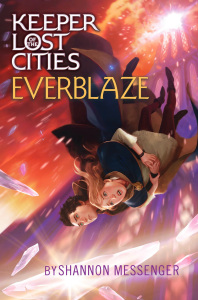The Naked Truth is back again and taking on the sci-fi thriller genre! This month I’m breaking down David Walton’s The Genius Plague with three “+’s” and “Δ’s” regarding his approach to the craft. I’ll be assessing the book as if he had submitted the novel to a critique group full of writers infected with something much more dangerous than a mind-controlling fungus: bitterness at not having thought of this idea first.

Before we begin, let’s inspect the “is this idea too similar to The Last of Us” clause, as the extremely successful video game series used a similar concept at the heart of their narrative: the question of whether Ophiocordyceps unilateralis could jump from insects into humans with globally devastating results. Fortunately, the book passes this test easily (thank goodness because I wrote about how zombies were played out nearly three years ago here), as Walton does some tricky philosophical tinkering with consciousness later in the book that both succeeds and fails in its own way.
A quick synopsis of the novel: the lovable yet annoying yet brilliant Neil joins the NSA and discovers that his brother Paul is at the heart of a weird fungus cult bent on destroying civilization, or more accurately, creating a world in which the “mushroom will thrive” or some such nonsense. Walton use a Crichton-esque hammer to drive the prose—it’s a helluva page-turner—and while the novel has some minor flaws, this a pretty slick read overall. Let’s see what the author’s done well:
+ The legendary Perfect Prologue
I read the free portion of this book on Amazon—the prologue only—and was completely blown away. Part of me knew he wouldn’t be able to keep up this measured style of writing for the whole book, but I had to read back those fifteen pages two or three more times just to admire his craftsmanship. Every sentence has exquisite balance and density, with just-right details and touches of setting, character and intrigue. If Walton could quit his day job and write entire books with this level of skill, he’d have true masterpieces.
+ Teach me, Oh Great One!
Americans have a taste for learning new information while they’re getting their story fix, and Walton has done a better job this time around than his previous work, Superposition, which got a bit laughable toward the novel’s end. The Genius Plague is loaded with cool facts about mycology, medicine, and what it’s like to work at the NSA, though whether or not that last one has any measure of truth, I’ll probably never know (hopefully). Part-way through the book you might find yourself doing your own research, a sign that he author has indeed infected you with the spirit of the book’s ideas.
+ Step to the rhythm, 1…2…1…2…
Technothrillers as a genre have a certain beat, or pulse, like a wave of data rolling down a fiber-optic tube, or a sensory input streaking across a field of tendrils. The hypnotic pacing of this novel sucks the reader in, and because it’s about a mind-controlling fungus, part of the fun for me was the “meta” of how the book was compelling me to read more of it, just like how the fictional Amazon ‘shroom convinces its human hosts to spread itself across the planet.

The Δ’s of this book, really, are nit-picks. These are difficult problems to fix and the author did his best to cover them up. But we’re look at this piece from a craft perspective, so let’s take off the padded gloves and inspect his stitching.
(Warning—SPOILERS! Don’t listen to the mushrooms talking inside your head):
Δ Momentum grinds down at the end of Act 1
Walton really had me hooked into our hero Neil when he gets his new job at the NSA, as his brother Paul goes a bit nuts while his father miraculously recovers from his Alzheimer’s. The fungus acts like the shark gunk from Deep Blue Sea mixed with that smart-drug from Limitless. But when Neil gets to Brazil and the plot supposedly ramps up, I found myself losing interest. The veil of the story falls away as the kind of cheesy “thriller motifs” start popping up. I think this would have been prevented if Neil could have acted more like a real “spy” and romp around Brazil on his own. He suffers from a lack of agency, as his all-powerful boss has to swoop in and save him a couple of times.
Δ “Let me explain” as Character A says to Character B
This trope is always necessary when dealing with conceptual science fiction, but Walton gets pretty heavy-handed with it by the second half of the book. A lot of the time the information feels repeated from earlier parts of the narrative, and overall the story is sucked dry because an NSA agent is trying to explain how the grid of supercomputers is like a mycological network, or a Pentagon scientist is going off on how a theoretical cure for the fungus might be in some gene-hacked version of itself, etc. etc. I felt that a lot of this Asimov-ish bloating could be trimmed to get to more interesting parts of the story—give me an epic battle scene in the heart of the Amazon mushroom-village already!
Δ Our hero can resist the mind-controlling plague because reasons
As Kij Johnson taught me, the author should treat their book like a slot-machine. The reader keeps putting in quarters expecting a jackpot and it’s up to the author to deliver on that promise. The jackpot at the end of this book is like one of those times where you get the bonus game, but you only end up winning a dollar or two more than you put in. The concept of a mushroom infection making a person super-smart and subtlety affecting their decisions is cool, but it falls apart when it’s looked on with any type of scrutiny. I was hoping for some kind of cool POV change when Neil got infected, but instead I was rewarded with him being kind of whiny about his lack of control, a major disappointment. The whole ending sequence is a bit Hollywood over-the-top while at the same time being unsatisfying. The nukes don’t go off because of some defuser mechanism Paul didn’t know about? That’s convenient…
Final evaluation:
Highly recommended if you’re into mushrooms, techno-thrillers, or if you wonder why the hell Snowden left his crappy job at the NSA. Otherwise, just order a supreme pizza and re-watch a 90’s action movie.
Negative marks aside, I’ll probably check out Walton’s next book to see what he gets himself into next, which is one of the highest compliments I can give. If he can figure out how to end his novels with the same skill as how he starts them, don’t be surprised to see his books infecting nearby grocery stores, airports, and booksellers near you.
– Jess
© 2017 Jess Flarity Books reviewed: The Genius Plague © 2017 David Walton, Pyr (paperback, 384 pages)Share this:






